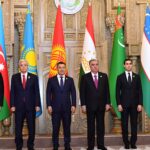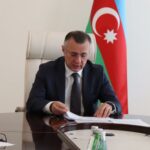“Our main national idea was the liberation of our territories… and we have achieved that. Of course, I have my own thoughts about further development, and in many cases, they will be decisive. However, I would like the discussions on the issue of our main national idea and views regarding our future development to also take place in society—among politicians, political scientists, scientists, representatives of the intelligentsia. That is, what should be the main national ideas in connection with our future development. This should be a topic of public discussion.”
I will attempt to briefly outline some thoughts on this topic.
The national idea of the Azerbaijani people, Azerbaijanism (Azərbaycançılıq), implies consolidation around national goals and applies to all citizens of the Republic of Azerbaijan and people who, while being citizens of other states, consider themselves Azerbaijanis, regardless of ethnic, religious and other identities. Heydar Aliyev, the national leader of Azerbaijan, designed Azerbaijanism taking the following into account:
- historical continuity of statehood on the territory of Azerbaijan from ancient times to the present;
- the path of evolutionary development of national thought in the 19th-early 20th century;
- mistakes and imbalances in the first years of independence;
- and the prospects for the development of statehood.
Azerbaijanism has created an umbrella identity of political nature over sub-identities (ethnic, religious, gender and other). The constructive nature of Azerbaijanism is that no sub-identity comes into conflict with the umbrella identity, i.e., Azerbaijanism is not a totalitarian ideology (contrary to the way it is being portrayed by its enemies), but a flexible ideological concept of a modern nation-state. Azerbaijanism implies individuality of each person in choosing their own way, correlating themselves and society in the context of common goals and interests. At the same time, it is Azerbaijanism that creates resources for the reflection of external impulses aimed at the fragmentation of society and the formation of groups of influence. It is Azerbaijanism and consolidation around unified goals that allowed the implementation of an independent, consistent and principled foreign policy.
As President Ilham Aliyev pointed out, the goal of the national idea was the liberation of Karabakh, restoration of territorial integrity and sovereignty. Under the leadership of President Ilham Aliyev, this goal has been achieved!
The main function of the national idea remains unchanged: to ensure the unity and consolidation of society. And Azerbaijanism turned out to be a functional national idea, which demonstrated its effectiveness during the 44-day war. Everything served a single purpose and that produced a result characterizing the historical stage of nation building.
It should be noted that achieving the goal carries certain risks. It may lead to vacuum, centrifugal tendencies, apathy… President Ilham Aliyev mentioned this as well.
In defining the new goals of Azerbaijanism, it would be advisable to take into account the outlined risks, as well as the aspirations of Azerbaijani society, the external geopolitical and geo-economic context, the resources of the state and society, technological and ethical principles of the modern period.
Given these filters, it may be appropriate to consider a symbiosis of goals rather than a single goal, as was the case in the previous stage, as the goals of Azerbaijanism:
– security: creating an atmosphere of security around Azerbaijan, strengthening its independence and defense capabilities;
– economic development: sustainable development of the state, inclusiveness of society, improvement of citizens’ wellbeing and technological breakthrough;
– increasing Azerbaijan’s international standing: participation in the global discussion on the new world order;
– rebuilding Karabakh: return of Azerbaijanis, return of life to liberated towns and villages.










